'The Greatest Religious Novels of All Time' stands as a monumental anthology, showcasing a diverse array of seminal works that interrogate and celebrate the nuanced contours of religious experience. This collection spans a wide range of literary styles—from the allegorical fervor of John Bunyan to the existential inquiries of Fyodor Dostoevsky, and the satirical sharpness of Voltaire. The anthology not only reflects the rich tapestry of historical religious discourse but also encapsulates how these narratives can intersect with profound philosophical questions and societal critiques. It invites readers to traverse a landscape where each narrative crafts a distinct yet resonant dialogue with the divine and the mundane. The contributing authors, giants in their respective eras, bring a formidable depth of cultural and historical perspectives. Figures such as Dante Alighieri and Johann Wolfgang von Goethe root the collection in a foundational literary tradition, while voices like Leo Tolstoy and Anton Chekhov offer a glimpse into the ideological tumult and exploration of the 19th century. This melding of periods and viewpoints provides a panoramic view on how religious themes have been variously construed and articulated across time and cultures, presenting a rich field of study on both historical and existential planes. This anthology is an indispensable resource for anyone interested in the intersections of literature, religion, and philosophy. 'The Greatest Religious Novels of All Time' promises not just a reading experience but an intellectual journey through the minds of some of history's greatest thinkers. Readers are encouraged to delve into this collection to appreciate the breadth and depth of religious discourse, witnessing how it shapes and is shaped by the human condition. It is a testament to the enduring power of literature to explore and reflect the most profound questions of life, belief, and beyond.

The Divine Comedy. Inferno
Dante Alighieri
audiobook
Library of Masterpieces - 100 Books to Read in a Lifetime
illiam Shakespeare, Fyodor Dostoevsky, Louisa May Alcott, Miguel de Cervantes, John Milton, Jane Austen, Charlotte Brontë, Emily Brontë, Anne Brontë, William Makepeace Thackeray, George Eliot, Charles Dickens, Thomas Hardy, Jonathan Swift, Daniel Defoe, Joseph Conrad, Robert Louis Stevenson, Mary Shelley, Bram Stoker, Arthur Conan Doyle, Wilkie Collins, Oscar Wilde, T. S. Eliot, D. H. Lawrence, James Joyce, Virginia Woolf, E. M. Forster, Evelyn Waugh, Aldous Huxley, George Orwell, H. G. Wells, Lewis Carroll, Frances Hodgson Burnett, Kenneth Grahame, C. S. Lewis, Malcolm Lowry, Ford Madox Ford, Mark Twain, Jack London, Herman Melville, Ernest Hemingway, Jack Kerouac, Nathaniel Hawthorne, Edith Wharton, Walt Whitman, Kate Chopin, Harriet Beecher Stowe, Neale Hurston, Richard Wright, Raymond Chandler, Dashiell Hammett, F. Scott Fitzgerald, John Steinbeck, William Faulkner, Margaret Mitchell, Sylvia Plath, Carson McCullers, L. Frank Baum, L. M. Montgomery, Leo Tolstoy, Ivan Turgenev, Nikolai Gogol, Johann Wolfgang von Goethe, Friedrich Nietzsche, Thomas Mann, Franz Kafka, Erich Maria Remarque, Albert Camus, Marcel Proust, Jules Verne, Victor Hugo, Gustave Flaubert, Stendhal, Alexandre Dumas, Henrik Ibsen, Rudyard Kipling, Homer, Sophocles, Virgil, Laozi, Sun Tzu, Plato, Marcus Aurelius, Dante Alighieri, Niccolò Machiavelli
book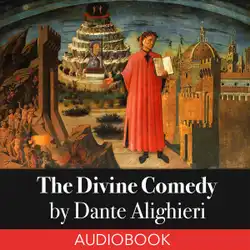
The Divine Comedy
Dante Alighieri
audiobookbook
La Divina Commedia di Dante
Dante Alighieri
book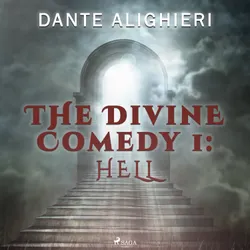
The Divine Comedy 1: Hell
Dante Alighieri
audiobookbook
Convivio
Dante Alighieri
book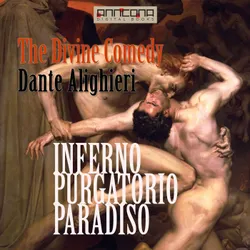
The Divine Comedy - Unabriged
Dante Alighieri
audiobookbook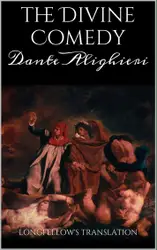
The Divine Comedy. Longfellow's Translation.
Dante Alighieri
book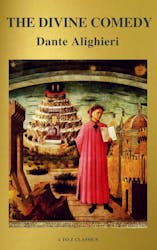
The Divine Comedy (Translated by Henry Wadsworth Longfellow with Active TOC, Free Audiobook) (A to Z Classics)
Dante Alighieri, A to Z Classics
book
Purgatory
Dante Alighieri
book
The Divine Comedy : Dante's Epic Journey Through Hell, Purgatory, and Paradise
Dante Alighieri, Zenith Blue Ridge Books
book
10 Masterpieces You Have to Read Before You Die, Vol.5 : The Odyssey, The Republic, Meditations, The Divine Comedy, Faust and others
Homer, Plato, Aristotle, Marcus Aurelius, Niccolo Machiavelli, Dante Alighieri, Johann Wolfgang Von Goethe, Leo Tolstoy
audiobookbook
